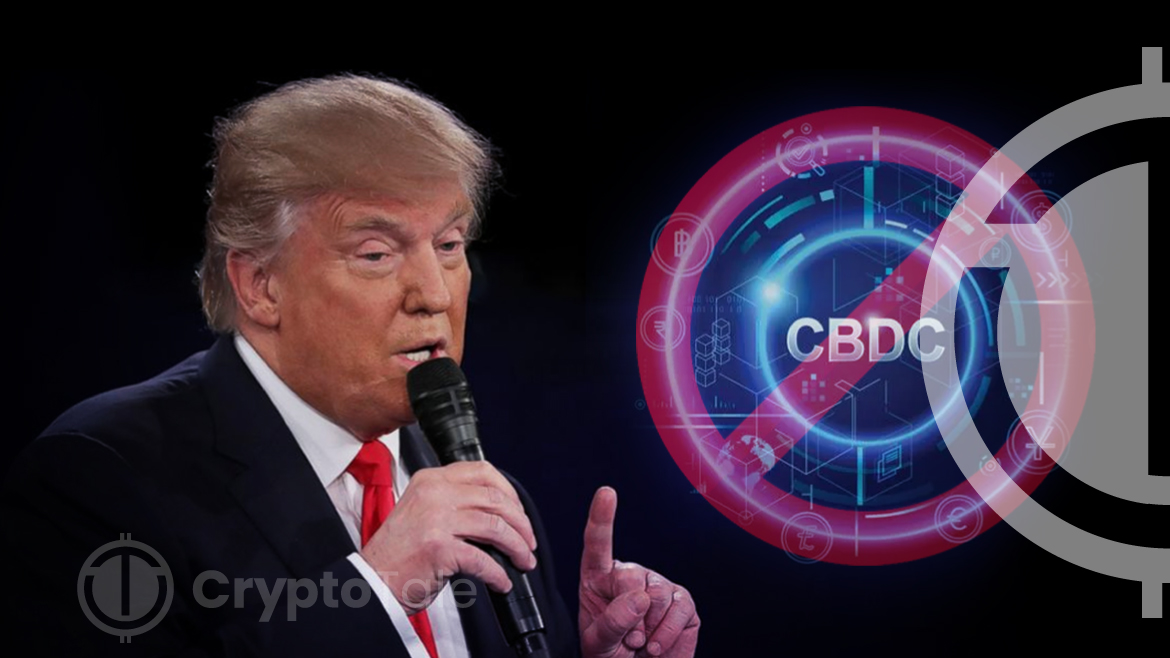- Donald Trump firmly opposes the creation of a Central Bank Digital Currency by the Federal Reserve during his 2024 presidential election campaign.
- Trump’s anti-CBDC stance resonates with other Republican leaders and reflects broader concerns about government overreach in personal finance.
- Global banks’ interest in digital currencies contrasts with Trump’s skepticism, despite his post-presidential foray into NFTs.
Former U.S. President Donald Trump made a vow to thwart the creation of Central Bank Digital Currency (CBDC) by the Federal Reserve in his presidential campaign. During his speech on Jan 17th at Portsmouth, New Hampshire, he expressed his willingness to protect the freedom of Americans.
He stated he would “never allow” the creation of a Central Bank Digital Currency, reiterating his concerns about government control over people’s money. His stance got a lot of applause, indicating people’s interest in the debate on digital currencies.
He talked about how a government-run digital currency could be a threat to freedom and privacy. Trump believes this kind of currency could give the government too much power over personal finance. He expressed concerns that the government could take away the money of individuals without consent.
Trump’s views against Trump CBDC coincide with the thoughts of other Republicans. Florida Governor Ron DeSantis also said he would be against CBDCs if he becomes president. The overall concerns of eminent leaders signify the impact of digital currencies on the common man.
Even though Trump is against CBDCs now, his past views on digital currencies have changed over time. When he was president, he expressed skepticism regarding cryptocurrencies like Bitcoin. He was worried about their price volatility and their use in illegal dealings. However, after his presidency, Trump ventured into the web3 world with non-fungible tokens (NFTs). He went on to launch three different NFT collections.
Meanwhile, the discussion around CBDCs is a growing trend that is not limited to the United States. Global central banks, such as the Bank of Canada, have been actively exploring the potential of digital currencies. Two years ago, the Bank of Canada joined forces with other major central banks, including those of Japan, England, and Switzerland, in a study group to examine the implications of digital currencies.
Because of his changing stance, some industry players believe Trump might be more open to cryptocurrencies if he becomes president again. The upcoming U.S. presidential election on November 5, 2024, is going to be vital for the nation. It might also be a game changer for the crypto industry and the future of digital currencies in the U.S.












